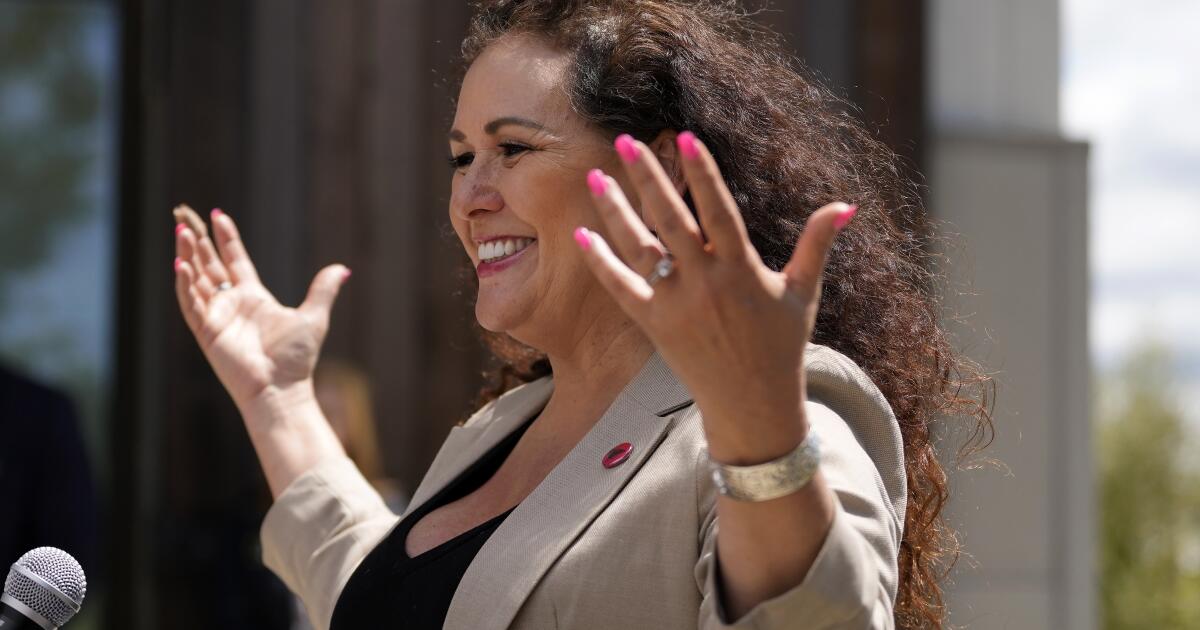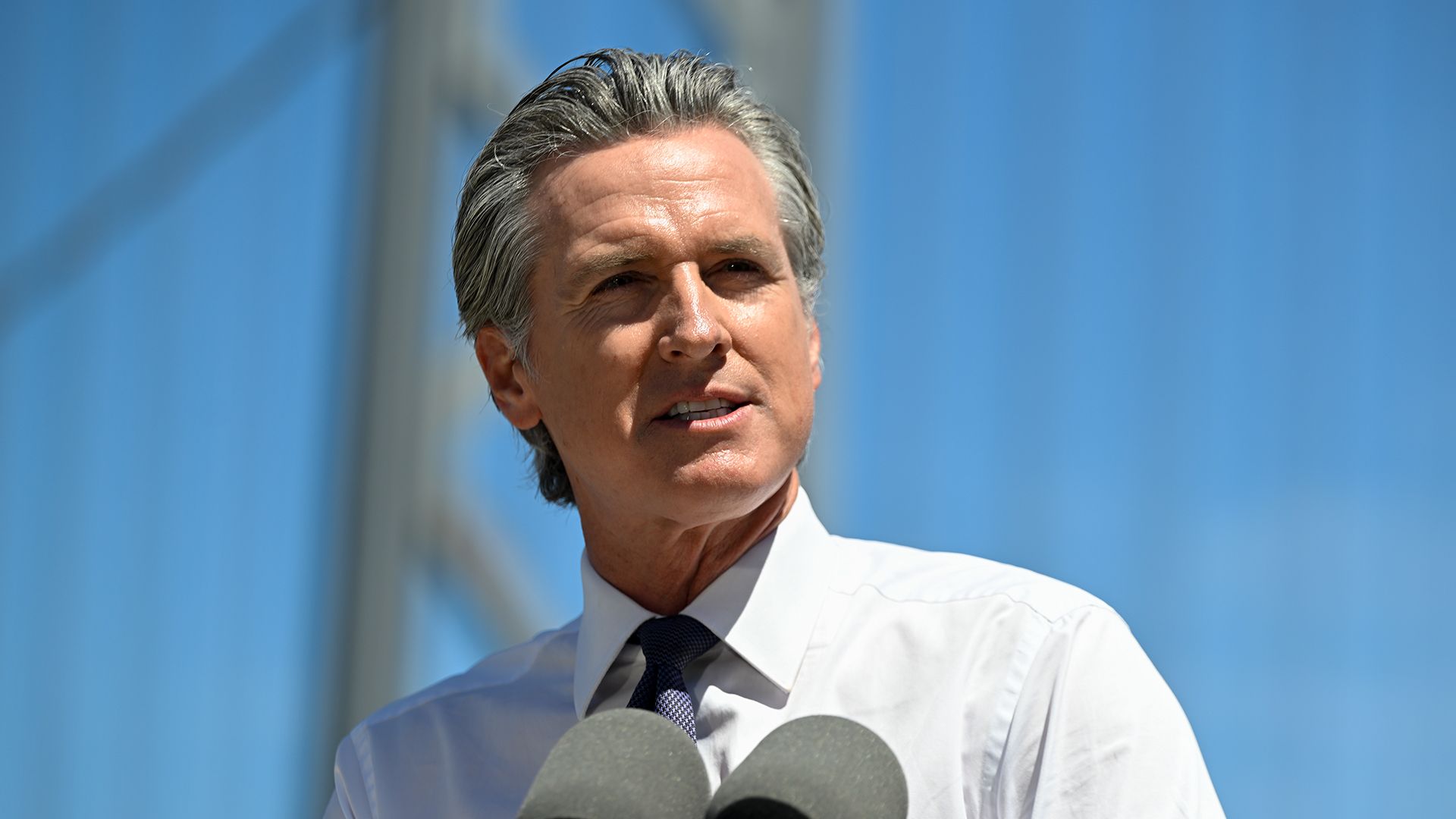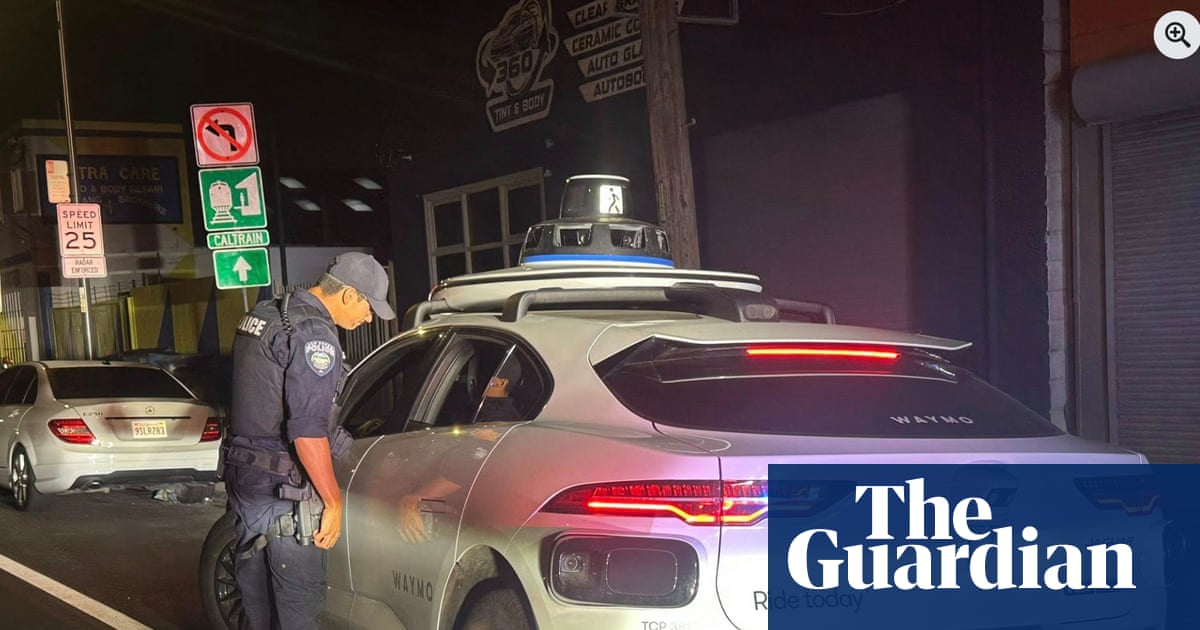#california-legislation
#california-legislation
[ follow ]
California
fromStreetsblog
1 week agoNew E-Bike Legislation That Includes Mandatory License Plates Panned by Bike Safety Advocates - Streetsblog California
Assembly Bill 1942 would require registration, DMV-issued license plates, proof of ownership, and enforcement fines for Class 2 and Class 3 e-bikes in California.
Mental health
fromABC7 San Francisco
1 month agoMoms with struggling adult children describe Reiner family tragedy as their 'worst nightmare'
A family murder case underscores gaps in California mental health and substance-abuse conservatorship processes and delayed implementation of SB 43 and Prop 1 investments.
fromABA Journal
1 month agoCalifornia targets attorney use of artificial intelligence through new legislation
Introduced by California Senate Judiciary Committee Chair Tom Umberg, a Democratic state senator from Santa Ana, California, the new bill codifies many guidelines for the use of AI in the practice of law that were published by the State Bar of California's Standing Committee on Professional Responsibility and Conduct in 2023, according to Law.com. Among its provisions, it requires attorneys to remove confidential personal identifying information from AI systems and to verify the accuracy of AI-produced material.
Artificial intelligence
California
fromKqed
1 month agoCalifornia Investigates Elon Musk's AI Company After 'Avalanche' of Complaints About Sexual Content | KQED
California strengthened laws to let prosecutors sue companies that recklessly distribute AI-generated non-consensual nude or sexual images, raising damages and lowering proof requirements.
California
fromwww.ocregister.com
1 month agoNo Kings': New California bill looks to prevent President Trump from seeking a third term
California bill would let the secretary of state bar constitutionally ineligible presidential candidates, including anyone attempting a third term, from the state ballot.
fromTasting Table
1 month agoA California Law Will Change How You See Menus Beginning July 2026 - Tasting Table
The law was part of a state senate bill that called for the amendment of the California Retail Food Code. The bill was signed by Governor Gavin Newsom in October 2025 and it comes into effect this July. That means from this summer forward, Californians can expect to see milk, eggs, fish, shellfish, tree nuts, peanuts, wheat, sesame, and soybeans listed as an ingredient on major restaurant menus.
Food & drink
fromLos Angeles Times
1 month agoCalifornia law let a politician avoid jail for child abuse charges. Lawmakers are furious
A mental health diversion granted to a former Kern County politician is coming under fire from numerous California lawmakers and child welfare advocates, who say a repeatedly amended state law is allowing an accused child abuser to avoid prosecution and possible jail time. Zack Scrivner, a former Kern County supervisor, was charged with felony child abuse in February after he was accused of inappropriately touching one of his children in 2024. But because of a Dec. 19 ruling by a judge, he will avoid a trial and instead be funneled into a mental health diversion program - an initiative aimed at helping defendants with mental health disorders get treatment instead of imprisonment for certain crimes.
California
California
fromLos Angeles Times
2 months agoCalifornia rolls out sweeping new laws for 2026, from cellphone limits in schools to a ban on cat declawing
California enacted nearly 800 bills in 2025 affecting health, education, legal claims, and policing, with many new laws taking effect on New Year's Day.
Higher education
fromThe Mercury News
2 months agoNew law streamlines housing development process for California's coastal universities
Assembly Bill 357 streamlines Coastal Commission approvals to accelerate and lower-cost development of student housing on California coastal university campuses starting Jan. 1.
California
fromwww.mercurynews.com
2 months agoTraffic death of Campbell boy leads to lower speed limit in school zones
California will adopt laws lowering school-zone speeds to 20 mph, speeding ballot counts, protecting consumers and animals, requiring rental price disclosure, and allowing rideshare unionization.
Privacy professionals
fromElectronic Frontier Foundation
2 months agoTrends to Watch in the California Legislature
California advanced privacy, transparency, and law-enforcement-accountability laws, including browser opt-out support, public court copying, bans on masked officers, and AI disclosure requirements.
fromKqed
2 months agoAll SF Firefighters Will Soon Have Equipment Free of Toxic 'Forever Chemicals' | KQED
Efforts to ban PFAS statewide have advanced this year: in October, Gov. Gavin Newsom signed AB 1881, introduced by San Francisco Assemblymember Matt Haney, which banned the use of PFAS in firefighting equipment for all California firefighters. And across the U.S., other departments have begun to make the transition: earlier this year, Providence, Rhode Island, rolled out new gear, and in 2024, Massachusetts passed a ban on the use of PFAS in firefighting PPE, set to take effect in 2027.
Public health
East Bay real estate
fromwww.housingwire.com
2 months agoSamara to add ADUs to five multifamily properties in the Bay Area
California's SB 1211 allows up to eight ADUs on multifamily parcels, enabling modular ADU installations to add housing and incremental rental yield on underutilized multifamily land.
fromInsideHook
3 months agoA Common Automotive Feature Also Makes Car Thefts Easier
As technology has advanced, so too has the range of what can be classified as a car key - which can increasingly refer to a device capable of operating with a keyless ignition system. The idea of being able to start a car just by pressing a button has its own appeal, but it can also come at a significant (and literal) cost.
California
fromwww.mercurynews.com
4 months agoCalifornians can now shoot swans year-round without a license
The picturesque wedding swan can now be legally shot in California year-round, without a license. Under a bill signed into law this month by Gov. Gavin Newsom, the mute swan has been added to the list of nongame birds that can taken or possessed at any time. Assembly Bill 764, by Jeff Gonzalez, R-Coachella, takes effect Jan. 1, 2026, and expires after five years.
Environment
fromThe Mercury News
4 months agoThe Trump administration wants to know more about the people on food stamps. How Gov. Newsom responded
A law that allowed the sharing of limitless amounts of personal data across the state to find people eligible for CalFresh was rescinded this week. On Monday, Gov. Gavin Newsom signed Assembly Bill 593 by Assemblymember Buffy Wicks, a Democrat from Oakland, that forbids state and local departments from sharing sensitive personal data to increase food stamp enrollment. RELATED: Gov. Newsom signs 'Safe Schools Act' taking unprecedented action against ICE in schools But only a year ago, it was Wicks who introduced that same data sharing initiative, to get more people enrolled in CalFresh, the state's federally funded food assistance program.
California
California
fromInside Higher Ed | Higher Education News, Events and Jobs
4 months agoNewsom Vetoes Bill Related to Reparations in College Admissions
Governor Gavin Newsom vetoed legislation allowing California colleges to give admissions preference to descendants of enslaved people, saying colleges can already do so.
fromThe Mercury News
4 months agoGlock ban, slavery reparations, ICE agent masks, more housing: Here are 10 key bills Gov. Gavin Newsom signed into law
ICE: Senate Bill 627, the "No Secret Police Act," by Sen. Scott Wiener, D-San Francisco, bans law enforcement officers from wearing face masks, except clear shields and other limited exceptions. The ACLU and other supporters say secret masked police are common in authoritarian countries, not democracies. Opponents, led by police groups, say masks are needed to protect officers from death threats. The Trump administration has told ICE to ignore the law, which may end up in court.
California
fromLGBTQ Nation
4 months agoGov. Gavin Newsom signs pro-LGBTQ+ bills, but vetos "critical" trans medication bill - LGBTQ Nation
On Monday, California Gov. Gavin Newsom (D) signed and vetoed the last of a slew of bills passed by the state legislature this year. Out of nearly a thousand measures awaiting his signature, Newsom signed 794 into law and vetoed 123. About the same ratio applied to bills designed to shore up state protections for transgender rights and the LGBTQ+ community, as the Trump administration's crusade against LGBTQ+ identity presses on.
California
fromStreetsblog
4 months agoThe Week(s) in Short Video - Streetsblog California
A lot of the videos produced for Streetsblog California focused on what the governor has, and hasn't, signed into law. They include a push for the governor to sign red-light camera reforms, a look at the bills we're still waiting for the governor to sign or veto, and announcements of the signing of a pair of controversial bills. Also, if you haven't voted on Prop. 50 just yet, Streetsblog breaks down how to do that and encourages a "yes" vote.
California
fromFast Company
4 months agoGovernor Newsom vetoed a bill restricting kids' access to AI chatbots. Here's why
The bill would have banned companies from making AI chatbots available to anyone under 18 years old unless the businesses could ensure the technology couldn't engage in sexual conversations or encourage self-harm. While I strongly support the author's goal of establishing necessary safeguards for the safe use of AI by minors, (the bill) imposes such broad restrictions on the use of conversational AI tools that it may unintentionally lead to a total ban on the use of these products by minors," Newsom said.
California
fromThe Verge
4 months agoCalifornia enacts its own internet age-gating law
The law mandates that device operating systems and app stores require users to enter their age or date of birth when setting up a new phone or computer. The new rules are slated to take effect on January 1st, 2027, and for devices set up prior to that date, the OS provider - like Apple or Google - must come up with a way for users to enter their ages by July 1st that year.
California
California
fromLos Angeles Times
4 months agoThis Central Valley serpent is California's new state snake. Can recognition save it from extinction?
California officially recognized the giant garter snake to raise public awareness for conservation as the endangered, wetland-dependent species faces habitat loss and climate-driven drought.
California
fromEater LA
4 months agoGovernor Newsom Just Signed a Handful of Bills to Support Restaurants. Here's What it Means for California.
California signed AB 592 and AB 671 to reduce restaurant permitting burdens, preserve outdoor dining flexibilities, and provide relief for small food businesses; two related bills await signature.
fromABC30 Fresno
4 months agoNew California law aims to stabilize insurance for people who can't get private coverage
The FAIR Plan is an insurance pool that provides policies to people who can't get private insurance because their properties are deemed too risky to insure. The number of homeowners forced onto the FAIR Plan has skyrocketed. With high premiums and basic coverage, the plan is designed as a temporary option until homeowners can find permanent coverage. But more Californians are relying on it than ever as increasingly devastating and destructive fires spark across the state, including in densely populated areas.
California
fromBusiness Insider
4 months agoCalifornia enacts law to prevent sexual abuse in K-12 schools following Business Insider investigation
California Gov. Gavin Newsom signed a bill into law on Tuesday aimed at preventing sexual abuse in K-12 schools in the state. The legislation was triggered by Business Insider's 2023 investigation into a California high school. The Safe Learning Environments Act, sponsored by state Sen. Sasha Renée Pérez of Pasadena, will require public and private schools in California to revise their comprehensive safety plans to specifically address sexual abuse and employee sexual misconduct.
California
Higher education
fromStreetsblog
4 months agoNewsom Signs Legislation to Streamline Student and Staff Housing at California Community Colleges - Streetsblog California
AB 648 authorizes California community college districts to build housing for students, faculty, and staff, overriding local zoning within a half-mile of campuses.
fromSan Jose Inside
4 months agoNew Laws Crack Down on Hate and Antisemitism in CA schools
We are also immensely grateful to Gov. Newsom, Pro Tem Mike McGuire, Speaker Robert Rivas and to so many of our non-Jewish colleagues of both political parties who have stood as staunch allies in the fight against hate. Together, we will continue to fight to ensure that students of all faiths and backgrounds are safe, welcome, and can thrive in our schools.
Social justice
California
fromForbes
4 months agoThis Week In Small Business Technology News: California Regulates AI, ChatGPT Adds E-Commerce And Slack Rolls Out An AI "Teammate"
California enacted SB 53 requiring developers of advanced AI systems to disclose safety and security protocols, report risks and cyberattacks, and provide whistleblower protections.
California
fromStreetsblog
5 months agoAdvocates: Governor Needs to Sign Bill to Modernize Red Light Regulations - Streetsblog California
SB 720 would modernize California red light camera programs by replacing criminal violations with $100 civil penalties, protecting records, and reinvesting revenue in traffic calming.
fromTruthout
5 months agoCalifornia Bill Could Set Dangerous Precedent Around Carbon Dioxide Pipelines
A California bill now awaiting Gov. Gavin Newsom's (D) signature would set a pathway to eliminate the state's trailblazing moratorium on pipelines used to transport carbon dioxide. The fossil fuel industry lobbied to shape the Democrat-sponsored legislation, which could allow such pipelines to be constructed without strict distance requirements around communities and sensitive wildlife habitats - raising fears that leaks or ruptures of the asphyxiant gas could occur close to people's homes.
California
fromLos Angeles Times
5 months agoNewsom signs AI transparency bill prioritizing safety
Gov. Gavin Newsom signed a bill Monday that will create new transparency measures for large AI companies, including public disclosure of security protocols and reports of critical safety incidents. Sen. Scott Wiener (D-San Francisco) said Senate Bill 53 will create "commonsense guardrails" to ensure groundbreaking innovations don't sacrifice safety and transparency amid the rapid growth of AI technologies.
Artificial intelligence
LGBT
fromPinkNews | Latest lesbian, gay, bi and trans news | LGBTQ+ news
5 months agoCalifornia gov Gavin Newsom urged to sign 'critical' trans rights bills into law
Californian trans groups urge Governor Newsom to sign five bills strengthening protections, privacy, safety, and declaring the state a refuge for trans people.
fromLos Angeles Times
5 months agoLoud TV commercials drive viewers crazy. California wants to quiet them down
Keller's husband is Zach Keller, legislative director for Sen. Tom Umberg (D-Santa Ana). Last year, when the pair became new - and newly exhausted - parents, their reprieve was watching a TV show on a streaming service while their daughter napped. Even though the TV and the baby were in separate rooms, a random commercial would "blare so loudly that it would startle [the baby] and wake her up," Keller told The Times.
California
California
fromThe Mercury News
5 months agoSurvivors of past Northern California wildfires shut out of last-minute bill adding $18 billion for state's restitution fund
California extended and replenished its Wildfire Fund with an additional $18 billion and a 10-year extension to address massive wildfire damages and utility liabilities.
California
fromwww.ocregister.com
5 months ago8 bills the California Legislature approved this year, from de-masking ICE agents to AI safeguards
California passed bills restricting law enforcement face coverings and identification, banning cat declawing, and targeting harmful AI companion chatbots, sending measures to the governor.
fromwww.mercurynews.com
5 months agoHistoric California science of reading bill heads to Gov. Gavin Newsom
If signed, AB 1454 moves the state one step closer to implementing evidence-based reading instruction in California classrooms a decades-long, highly contentious state debate. Authored by Assembly Speaker Robert Rivas, who represents Salinas, and Assemblymembers Al Muratsuchi of Torrance and Blanca Rubio of Baldwin Park, AB 1454 would adopt new evidence-based reading instructional materials and training. Also known as the science of reading, evidence-based reading teaches students how to read by emphasizing skills like phonics and vocabulary rather than word recognition and memorization.
Education
[ Load more ]
































